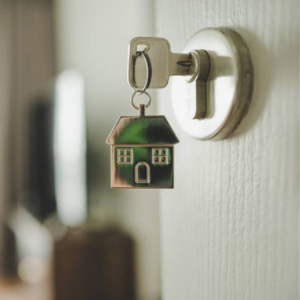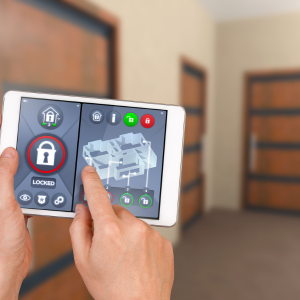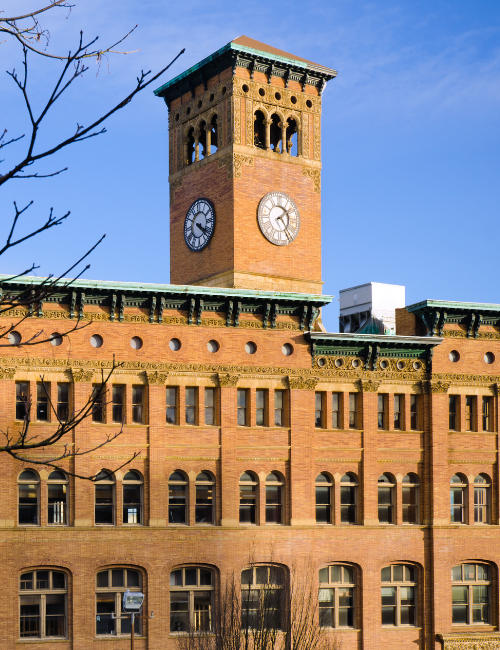
Understanding Tacoma, WA’s Regulations on Vacant Properties
Individuals who own homes in Tacoma, WA and want to keep their homes’ value during long times of unoccupiedness need to know the rules regarding vacant properties. Specific rules have been set up by the city to make sure that empty houses stay safe, secure, and well-kept, which protects the integrity of residential neighborhoods.
People who own empty homes must register them with Tacoma’s Building and Land Use Services. This step makes it easier for the city to keep an eye on these buildings and make sure they don’t get damaged or become unsafe. Registration makes sure that everyone is responsible and helps the city keep track of how properties are being used over time.
Beyond registration, homeowners must also follow basic maintenance rules. This includes keeping up with lawn care, securing all doors and windows, and ensuring the exterior remains clean and intact. These efforts reduce the risk of vandalism, squatting, and code violations—issues that can damage both the home’s and neighborhood’s value.
Thinking about moving into Tacoma? Kind House Buyers is here to help you every step of the way. By following the city’s vacant property regulations, homeowners can safeguard their property’s long-term value while contributing to the overall stability and appearance of the community.
Legal Implications of Leaving a House Unoccupied in Tacoma
Leaving a house unoccupied in Tacoma for an extended time can have legal consequences that affect both the homeowner’s liability and property value. Tacoma’s local ordinances and Washington State laws enforce specific responsibilities on owners of vacant properties to prevent them from becoming hazards or public nuisances.
To stay within the rules, homeowners are responsible for maintaining the outside of their homes, which includes the yard and general fixes. In the future, it may be harder to sell or rent the home because of fines, liens, or legal steps if you don’t follow the rules. Anyone who sees an empty house that looks like it’s been abandoned may also break the law by vandalizing or living on it. This can be a problem if someone gets hurt there.
Insurance is another concern. Many plans have “vacancy clauses” that limit or cancel coverage if the home is empty for too long without telling the insurance company. Then, if damage happens, claims might not be paid.
Understanding and staying ahead of these legal implications allows homeowners to better protect their investment while the property remains unoccupied..
Insurance Requirements for Unoccupied Homes in Tacoma

It is important for homeowners in Tacoma who want to protect their property during long periods of vacancy to know what insurance standards apply to empty homes. When a house is empty for more than 30 to 60 days, most standard home insurance plans put limits on what can happen. This could mean that claims are denied or coverage is canceled.
Before this happens, homeowners need to let their insurance company know about the empty home and look into options like vacancy policies or special insurance for empty homes. As the name suggests, these plans cover risks that get worse when a house is empty, like theft, vandalism, or water damage from leaks that aren’t noticed.
Not having the right coverage in place can leave your property exposed to major financial risks. Some insurers even require periodic inspections or proof of maintenance as part of their coverage terms, so it’s important to stay informed.
By updating your insurance to reflect the home’s status, you protect its market value and structural integrity, ensuring your investment remains secure throughout the vacancy period.
Impact of Vacancy on Property Taxes in Tacoma, Washington
Long-term property vacancies in Tacoma, Washington, can have a direct effect on property tax assessments and the value of a house overall. Local tax officials may see a property as neglected or run-down if it is empty for a long time. This could lead to more scrutiny and, in some cases, a change in the property’s tax rate.
It may affect not only the value of the vacant property but also the values of the homes nearby if it adds to the decline of the neighborhood through things like overgrown landscaping, obvious signs of neglect, or safety concerns. This wear and tear can cause the city to reevaluate the area, which could mean higher taxes or legal action to force upkeep.
Additionally, vacant homes often face increased liability risks and require more upkeep, which adds to the cost of ownership. To avoid financial strain, homeowners should take proactive steps to maintain their property’s appearance and structural health.
Staying on top of local tax policies and vacancy ordinances helps Tacoma homeowners protect their investment while minimizing unnecessary tax burdens during long-term unoccupancy.
Preparing Your Home for Extended Vacancy in Tacoma, Wa
Preparing your Tacoma home for long-term empty occupancy is important to keep its value and avoid problems in the future. First, turn off any services that aren’t necessary. Then, make sure the thermostat is set to a temperature that will keep pipes from freezing in the winter. During long vacations, this helps keep things safe while also saving money.
Secure all entry points, including doors, windows, and garage access. Consider installing a monitored security system or smart devices that allow remote oversight of your property. Before leaving the home unoccupied, take care of any outstanding maintenance issues—leaks, roofing damage, or minor repairs—to prevent larger problems down the road.
Also, don’t forget about landscaping. Take care of the yard and clear away any trash on a regular basis to keep the property’s curb appeal and keep people from noticing that it’s empty. If you want to keep water from building up during Tacoma’s wet seasons, make sure your gutters and downspouts are clear.
Having someone you trust check in periodically, or hiring a property manager, ensures the home stays in good condition while vacant.
Managing Utility Services for Vacant Properties in Tacoma
In Tacoma, managing utility services properly during a home’s vacancy is key to protecting your investment. Keeping utilities on at minimal but safe levels can prevent damage while reducing monthly costs. For example, heating should remain active in winter to prevent frozen or burst pipes.
Electricity should be left on to power essential systems like alarms, security lighting, and smart home devices that offer remote monitoring. Water service, however, may need to be turned off or significantly restricted, depending on the season and how frequently the property is checked.
Routine evaluations of plumbing systems are essential to identify leaks or slow drips that may result in costly water bills or mold problems. Tacoma energy companies may give facilities for remote consumption tracking, enabling households to monitor any irregularities closely.
Strategic utility management not only minimizes risks during the vacancy period but also helps maintain the home’s habitability and overall market value over time. Managing HOA costs is also the key when keeping a house vacant. Our article on the rise of HOA fees in Tacoma , WA explains how fees may change over time
Security Measures for Long-term Vacant Houses in Tacoma

Effective security measures are crucial for long-term vacant houses in Tacoma to prevent criminal activity and property damage. One of the first steps is installing a quality security system with cameras and motion-activated lighting, which can discourage trespassers before they approach the property.
Smart technology lets people keep an eye on their property from afar, check in through mobile apps, and get alerts if there’s any strange behavior. Add strong locks and security screens to all entry points, especially doors and windows that are on the ground floor.
The home’s outward appearance should not signal vacancy. Regular lawn care, scheduled exterior lighting, and keeping mail from piling up can create the illusion that the property is still occupied. These small touches can go a long way in deterring break-ins.
Working with the police or neighborhood watch groups in some areas to ask for more patrols can also be helpful. These proactive security steps help keep your property in good shape and protect its value while it’s empty.
Protecting Your Vacant Property From Vandalism in Tacoma, Wa
Protecting your Tacoma empty property from vandalism is important if you want to keep its value and avoid having to pay for expensive repairs over time. Vandals may be drawn to empty homes for long periods of time, especially in areas that are quiet or not heavily guarded. Visible security is therefore a key deterrent.
Start by putting up motion-sensor lights and security cameras around entry points to make them easier to see. Criminals are less likely to damage a place that is well lit. If you keep the yard neat and trimmed, even when the house is empty, it will look like it’s been taken care of.
Enlist help from neighbors you trust or hire a local property management company to conduct regular drive-by checks. These routine visits are effective in catching signs of damage or suspicious activity early.
Having good locks on your windows and doors is another way to keep yourself safe. Some owners go even further and use window film or temporary shutters to keep their homes safe. Residents of Tacoma can protect their property’s long-term value and avoid expensive vandalism by following these steps.
Understanding the Risks of Squatters in Vacant Homes in Tacoma
In Tacoma, understanding the risks of squatters is essential for homeowners trying to protect their property during long vacancies. Empty homes can easily become targets for unauthorized occupants, especially when security measures are weak or inconsistent. Once squatters move in, removing them can involve a lengthy and costly legal process.
Squatting can lead to serious property damage, disputes, and even legal liability if someone gets injured while occupying the home. Washington laws grant certain rights to individuals after extended stays, making quick action and prevention critical for property owners.
To lower the risk, people should make the locks stronger, put up surveillance cameras, and make sure the property looks like it’s been taken care of consistently. Regular check-ins by trusted friends or family or a professional manager help keep an eye on the property and make it less exposed.
Being proactive with security and fully aware of local squatter laws helps homeowners maintain control of their investment and avoid situations that could significantly lower the property’s market value.
Strategies to Prevent Water Damage During Vacancy in Tacoma
One of the most important things you can do to protect a Tacoma empty home is to keep water damage from happening. Because it rains a lot in the city, homes are more likely to have sewage problems, roof leaks, and water getting inside, which can lead to expensive structural problems if not caught.
Before you leave a house empty, you should carefully check all of the water systems. If the house won’t be occupied during cold weather, you might want to turn off the water or drain the lines. To be safer, put in smart leak monitors that will let you know on your phone if the water flow changes.
Make sure gutters are clear and drainage is effective around the foundation to avoid pooling or overflow. A neglected drainage system can lead to erosion or basement flooding—both of which are common and costly problems in Tacoma’s rainy season.
Having someone check on the property on a regular basis or getting a local maintenance service can help you find water problems early. By taking these steps, homeowners can avoid having to make big repairs and keep their home’s market value while it’s empty for a long time.
Maintaining Curb Appeal for Unoccupied Properties in Tacoma
Keeping up curb appeal is crucial when a home in Tacoma is left vacant. An attractive, well-kept exterior signals that the property is being looked after and helps discourage vandalism, theft, or squatting. Regular yard care, such as mowing the lawn and trimming bushes, is essential to prevent the home from appearing abandoned.
Because it is wet in Tacoma, people should also keep an eye on moss growing on their roofs, sidewalks, and roads. Moss that isn’t taken care of can not only make a building look bad, but it can also damage it over time. Adding new paint to the outside, cleaning the windows, and fixing broken features all make the house look friendlier, even when no one is living there.
Simple landscaping changes or seasonal plants can make the house look better and raise its value. Clear the driveway and porch of trash to keep them looking nice.
With consistent upkeep, vacant properties remain appealing and retain strong market value in Tacoma’s competitive real estate environment.
Neighborhood Watch Programs and Vacant Homes in Tacoma, Wa
In Tacoma, neighborhood watch programs are very important for keeping empty homes safe and keeping property values high generally. These community-based programs encourage people to be alert and talk to each other, which helps neighbors work together to keep homes safe when no one is home.
When a house is left vacant, it becomes more vulnerable to break-ins or vandalism. A strong neighborhood watch program means there are more eyes on the street—residents can report suspicious behavior quickly, often before problems escalate.
Together with the local police, these groups also set up extra patrols, especially in places with a lot of empty homes. They might suggest improvements to safety, like better lighting or signs for security, which make people even less likely to do something bad.
Joining or giving money to a neighborhood watch not only keeps your property safer, but it also builds community spirit that makes the neighborhood look better. This shared duty helps keep the area’s value and reputation high even when homes are empty.
Community Guidelines on Reporting Abandoned Houses in Tacoma
For the safety of areas and to keep property values high, Tacoma has clear rules about how to report abandoned homes. It is encouraged for people to report to city officials right away any property that looks like it hasn’t been taken care of, like one with overgrown grass, broken windows, or evidence of illegal activity.
The City of Tacoma provides online portals and direct contact numbers to streamline the reporting process. Once a report is made, the city may send inspectors to assess the condition of the property and initiate action if violations are found. This could include notifying the owner, imposing fines, or requiring certain repairs.
Community involvement is crucial. The quicker an issue is reported, the sooner it can be addressed—minimizing the risk of further decline. By staying alert and engaged, Tacoma residents can help transform neglected homes into maintained, valuable assets.
Following these community reporting guidelines supports neighborhood safety, promotes accountability, and helps preserve real estate value citywide.
Climate Effects on Long-term House Vacancy Maintenance in Washington State
The climate in Washington State, particularly in Tacoma, can pose significant challenges for maintaining homes during long-term vacancies. Frequent rain and damp weather conditions increase the risk of mold growth, wood rot, and water damage in unoccupied properties.
Regular ventilation is important for homes who want to keep moisture from building up. Humidity levels inside can be controlled by putting in dehumidifiers and using fans in closed areas. Additionally, it is crucial to regularly check the roof, siding, and gutters to stop leaks that might not be noticed in empty houses.
Tacoma’s cold winters present another challenge: if pipes are not insulated or heating is turned off, they can freeze and burst. Winterizing the home by draining pipes or setting the thermostat at a safe level is an effective way to avoid this damage.
One way to find problems early is to do regular check-ins or hire a property manager. By taking action, homeowners can protect their property and lower the costs of repairs caused by the unpredictable weather in the area.
Seasonal Considerations for Vacant Homes in Tacoma, Washington
Seasonal changes in Tacoma can have a major impact on how homeowners manage vacant properties. Each season brings specific challenges that must be addressed to maintain property condition and market value during extended vacancies.
Heaps of rain in the winter can cause leaks, flooded basements, and mold growth if the house isn’t properly protected. Ensure that the roof is in good shape, the gutters and drains are clear, and the drainage systems are working properly. Additionally, keeping the air inside warm can help keep pipes from freezing.
During summer, while weather is drier, landscaping needs consistent care. Without irrigation, grass can die off and curb appeal suffers. Dry conditions can also put stress on building materials, causing cracks or shifting if maintenance is neglected.
Checkups and preventative upkeep can be done in the spring and fall. In your absence plan, you should include each season to make sure that your property stays safe, looks good, and is ready to be rented out or sold again.
Technology Solutions for Monitoring Empty Homes Remotely

Technology offers Tacoma homeowners powerful tools to monitor empty homes remotely and protect their investment during long-term vacancies. Smart home systems make it easier than ever to manage and maintain properties from a distance while improving overall security.
People who install smart cameras, motion detectors, and video doorbells can get real-time alerts when someone is on their land. Usually, these devices can be connected to a phone app that lets you view and control them at any time.
Additional tools such as smart thermostats, leak detectors, and remote lighting systems help create the illusion of occupancy and prevent damage from water or extreme temperatures. You can even schedule lights to turn on and off at certain times to deter intruders.
In addition to protecting the property, these tech solutions show that you are proactive about managing your house, which can be a selling point for people who are looking to buy in the future. Using technology protects empty homes, keeps them working, and gets them ready to sell.
Creating a Checklist for Managing a Vacant Home Safely and Legally
For safe and legal management of your empty Tacoma home, making a detailed plan is a good idea. Making sure all the doors and windows are locked, installing a security system, and thinking about surveillance cams or smart monitoring devices are all good places to start.
Next, plan for regular maintenance. Schedule periodic visits to inspect for leaks, pests, or signs of vandalism. Keep the lawn mowed, the gutters clean, and the exterior tidy to avoid attracting unwanted attention or triggering code violations.
Utility management should also be part of your list. Decide which services to turn off or leave running, such as maintaining minimal heat in colder months to prevent frozen pipes. Be sure to inform your insurance provider about the vacancy and verify that your policy provides proper coverage.
Lastly, make sure you follow Tacoma’s rules for empty homes, which may include registering your home if needed. With a well-thought-out list, you can make sure that your home stays safe, clean, and profitable during the vacancy period.
How to Rent Out or Sell a Historically Vacant Property Quickly
Renting or selling a historically vacant property in Tacoma quickly requires a mix of smart updates and strategic marketing. Begin by improving curb appeal—clean up the yard, refresh the paint, and make small exterior repairs to make a strong first impression.
Inside the home, tackle any deferred maintenance. Fix leaks, check electrical and plumbing systems, and consider updating outdated features with modern touches that appeal to current buyers or renters. Staging the property can also help potential occupants imagine themselves living there.
Use professional photography and create high-quality listings to show the property in its best light. A clean, well-maintained home with attractive visuals will stand out in Tacoma’s competitive real estate market. Offering incentives like move-in-ready condition or energy-efficient appliances can also sweeten the deal.
Partnering with a real estate professional who understands the local market ensures the property is priced right and marketed effectively. These steps help you move the property quickly while recovering or increasing its value.
Can I Leave My House Vacant?
Yes, you can leave your house vacant in Tacoma, but doing so safely requires careful planning to avoid costly problems or legal issues. While it’s not illegal to leave a property unoccupied, homeowners must ensure it stays secure, well-maintained, and properly insured.
Begin by locking all doors and windows, installing a reliable security system, and arranging for regular inspections. This prevents vandalism and makes the property less attractive to squatters or thieves.
Routine maintenance is just as important. Mow the lawn, clear gutters, and address any exterior repairs to maintain curb appeal and comply with Tacoma’s property codes. Don’t forget to notify your insurance provider about the vacancy—many standard policies won’t cover damage if the home has been empty too long.
By staying on top of maintenance, security, and insurance, Tacoma homeowners can confidently leave their property vacant without risking its value or condition. We buy houses in Washington, including vacant homes, and can help make the selling process quick and stress-free.
How Long Can Someone Leave Their Belongings on Your Property in Washington State?
In Washington State, including Tacoma, property owners must follow specific legal steps when dealing with abandoned belongings left behind by a former tenant or guest. If someone leaves their items on your property after moving out or being evicted, you can’t immediately discard them.
By law, you must provide written notice of your intent to remove or dispose of the belongings. This notice must give the former occupant a set time—usually 45 days—to claim their items, often in exchange for any reasonable storage costs. If they do not respond or retrieve their property within the timeframe, you may proceed with disposal.
Failing to follow these steps could result in legal liability or financial penalties. Documenting communication and respecting timelines helps protect you and ensures that you remain compliant.
Understanding these laws is critical for Tacoma homeowners managing extended vacancies or transitioning between tenants, especially when preserving both legal standing and property value.
How Long Can You Let Someone Stay at Your House Without?
In Tacoma, it’s important to understand how long a person can stay at your house before they may be considered a tenant under the law. Typically, if someone stays for more than 14 to 30 days, they may start gaining legal rights—even if there’s no formal rental agreement.
Allowing a guest to overstay without documentation can create complications if you ever need them to leave. Washington State law may grant tenants certain protections, which require you to go through a formal eviction process if the situation escalates.
To avoid this, clearly define the terms of any extended stay from the beginning. Keep written records of agreements and avoid accepting rent or other compensation unless you’re prepared to treat the guest as a tenant.
Being proactive protects your ability to manage the property, especially during times when it’s vacant or in transition. Clear boundaries and documentation help you maintain control and preserve your home’s value and legal clarity in Tacoma’s real estate landscape.
Want to sell your house for cash in Tacoma, Washington? We specialize in buying homes as-is—no repairs needed, no agent fees, and absolutely no hassle. The entire process is 100% FREE to you.
Our experienced team is here to guide you every step of the way and make sure you feel confident from start to finish. Reach out today, we’re here to help.
Helpful Tacoma Blog Articles
- Home Sale Contingencies In Tacoma’s Real Estate Market
- Attorney Fees For Home Closings In Tacoma, WA
- Selling A House In Poor Condition In Tacoma, WA, Without Renovations
- Navigating The Sale Of Your Tacoma, WA, Home With An Ongoing Insurance Claim
- Homeowners Insurance When Selling Your House In Tacoma, WA
- Understanding Tacoma, WA, Property Tax Rate
- Fun Facts About Tacoma, WA
- Home Appraisals Before Closing In Tacoma, WA
- Tax Implications For Selling An Inherited House In Tacoma, WA
- Understanding Who Is Responsible For HOA Fees At Closing In Tacoma, WA
- Guidelines For Extended Vacancies In Tacoma, WA, Homes

| LANDLORD AND TENANT | LEASE | LEASE OR RENTAL AGREEMENT | LEASE AGREEMENTS | LESSOR | TENANCY |
| PERIODIC TENANCY | RENTAL AGREEMENT | UNLAWFUL DETAINER | NOTICE TO QUIT | NOTICE TO VACATE | INSURANCE CLAIM |
| CHILDREN | CHILD | PAYMENT | MONETARY DAMAGES | NONECONOMIC DAMAGES | GARBAGE |
| TRASH | EVIDENCE | REGULATORY | REALTY | ATTORNEY | LEGAL COUNSEL |
| INBOX | VEGETATION | STATUTES | REFRIGERATORS | FREEZERS | |
| PRIVACY | POLICE | MONEY | INFORMATION | HOA | ELECTRICAL APPLIANCES |
| FAILURE | EMERGENCY | DATA | CRIMINAL OFFENSE | COMPANY |
